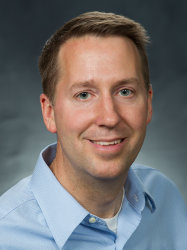Overview
Dr. Bangerter's research focuses on the development of new and improved techniques in medical imaging, with a focus on innovative image acquisition and reconstruction strategies using machine learning. Projects include the development of rapid image acquisition strategies, novel post-processing and reconstruction techniques, and algorithms for image interpretation and diagnostics. His research draws heavily on the sub-disciplines of signal processing, machine learning, and magnetic resonance physics. An understanding of the physiology of the biological systems to be imaged also plays an important role in this type of research.
Current Interests
Machine learning for image reconstruction, segmentation, and classification
Ultra-high field imaging (7 Tesla) of the musculoskeletal system
Image acquisition acceleration techniques/rapid imaging
projects
Development, analysis, and optimization of new techniques for physiological and structural imaging of cartilage at ultra-high field strengths (7 Tesla) (e.g., ultra-high field sodium MRI)
Machine learning-based automated segmentation of ultra-high resolution 3D images of joint structures for rapid and accurate morphological measurements (for example, of regional cartilage volume and thickness for assessing the progression of osteoarthritis)
Automated classification of infant risk for hip dysplasia from 2D hip images using machine learning
Highly-accelerated steady-state magnetic resonance imaging techniques
High-resolution magnetic resonance imaging of the human larynx
Honors and awards
Dr. Bangerter held the David C. Evans Chair in Electrical Engineering at Brigham Young University, received the Lauterbur Award from the Society of Computed Body Tomography and Magnetic Resonance (SCBT/MR) in 2008, and the Cum Laude Award from the same society in 2009. He was awarded the William K. Bowes Jr. Fellowship for his doctoral studies at Stanford, and was a recipient of the Hertz Foundation Scholarship for his undergraduate studies.

